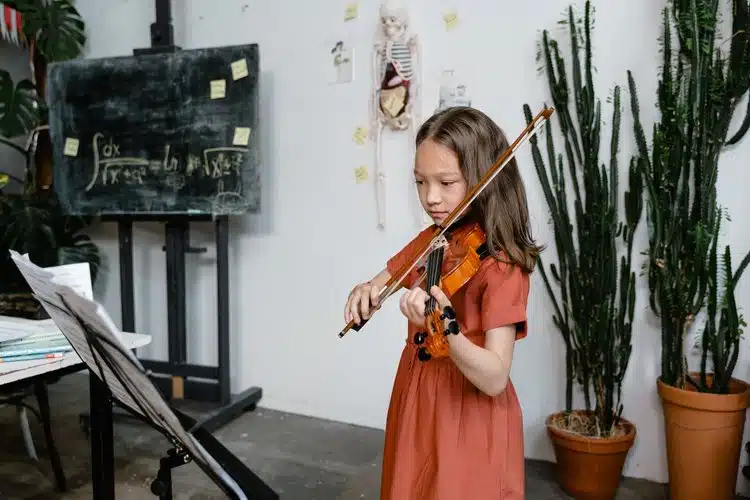December 6, 2021
Four Ways to Organize Your Practice Sessions

Whether taking private music lessons, a group class, or learning music on your own, your child’s progress with the instrument depends largely on how they practice! Are you wondering how you can organize and structure their music lessons and practice sessions?
Any great musician will tell you that it usually takes countless hours of hard work and practice in order to reach the level that they are at. However, if they are completely honest, they will also admit that there are many occasions when they just don’t feel like practicing. Sometimes, your child may feel the same way.
One of the best ways to make sure that your child’s practice time is effective and fun is to manage their time well by organizing their practice sessions. Here are a few tips and insights that adults and children can use to organize their sessions better:
1. USING PRACTICE SPACE TO LOG YOUR PRACTICE
It’s 2021, and we have access to many impressive technological innovations, such as apps right on our smartphones! Practicing an instrument can be exciting and fun, but also stressful for many kids. They have to determine what to practice and they may not get everything done. This is where logging your practice can be helpful. There are many applications that you can use for this purpose.
For example, Practice Space is great as it helps you focus and have a better and more productive practice. This simple-to-use platform features a media and assignment library so that teachers can use content with students regularly. It lets you record all your practice sessions, take notes, and even track your practice time.
2. DON’T TRY TO PRACTICE EVERYTHING AT ONCE
It is important to break it up. Note that if your kid has just spent the entire day at school, they will probably want to spend some time on the couch catching up on their favorite TV shows. However, it doesn’t mean that your kid should skip their practice session entirely.
By keeping the practice session short – 15 minutes to 20 minutes – your child can achieve the best results. However, you have to be logical. For example, when deciding on a section, choose musically logical divisions. Note that a natural tendency is to work on music sections that are very large.
It is best to choose a section that seems reasonable in length and divide it into multiple sections to be played over several sessions.
3. DIVIDE PRACTICE INTO SECTIONS- TECHNIQUE, REVIEW PIECES, AND CURRENT REPERTOIRE
Keep in mind that depending on what music your kid is playing and what their goals are for the lessons, they will likely play technical exercises and review pieces.
You can divide your sessions into various techniques and sections. Note that practicing technique has two key parts. The first part is exercises such as triads, scales, and arpeggios. The second part is pieces called “etudes” or “studies.” You can also practice a new or current repertoire and have your child learn at least one or more new pieces.
Whether your child is just starting or is an experienced player, they should understand what deliberate practice is and how to execute it. If your child is playing exercises in addition to pieces, note that one excellent piano practice organizing technique is starting each practice session with a warm-up of scales. This should be followed by suitable exercises, and working on repertoire.
Keep in mind that dividing each practice session into various sections like this will help your child stay regular with what they are practicing.
4. HAVE FUN AND PLAY ANYTHING TO STAY MOTIVATED
While music is full of rules, when your kid is at home, give them the liberty to break these rules. Let them follow their curiosities. The important thing is to have fun during your music lessons. Note that an easy way to make your music practice seem like dreaded work is just focusing on a single problem.
You can easily avoid this by arranging your practice schedule with variety to include various things that you like to do and intersperse them with challenges. It is best to alternate challenges with fun and engaging activities so that you don’t feel like the practice session is a chore. Keep in mind that experimentation is important and is also the first step in composing a masterpiece.
Music Lessons and Education for Kids
Maybe your child is not having fun practicing their instrument because their music teacher is uninspiring and their music lessons are rigid. If that is the case, you should look elsewhere.
Here at the California Conservatory of Music, we offer a whole range of high-quality music lessons, such as violin and guitar lessons. With Redwood City music lessons, you can set your kid up for success where they will learn excellent organization techniques. Similarly, Sunnyvale music lessons can provide developmentally appropriate music education for young children. Get in touch today to learn more.
